- Home
- Dennis Lehane
Live by Night
Live by Night Read online
Live by Night
Dennis Lehane
Dedication
For Angie
I’d drive all night. . . .
Epigraphs
Men of God and men of war have strange affinities.
—CORMAC MCCARTHY, BLOOD MERIDIAN
It’s too late to be good.
—LUCKY LUCIANO
Contents
Dedication
Epigraphs
PART I: Boston 1926–1929
Chapter One: A Twelve O’Clock Fella in a Nine O’Clock Town
Chapter Two: The Lack in Her
Chapter Three: Hickey’s Termite
Chapter Four: A Hole at the Center of Things
Chapter Five: Rough Work
Chapter Six: All the Sinners Saints
Chapter Seven: The Mouth of It
Chapter Eight: In the Gloaming
Chapter Nine: As the Old Man Goes
Chapter Ten: Visitations
PART II: Ybor 1929–1933
Chapter Eleven: Best in the City
Chapter Twelve: Music and Guns
Chapter Thirteen: Hole of the Heart
Chapter Fourteen: Boom
Chapter Fifteen: His Daughter’s Eyes
Chapter Sixteen: Gangster
Chapter Seventeen: About Today
Chapter Eighteen: Nobody’s Son
Chapter Nineteen: No Better Days
Chapter Twenty: Mi Gran Amor
Chapter Twenty-one: Light My Way
Chapter Twenty-two: Quench Not the Spirit
PART III: All the Violent Children 1933–1935
Chapter Twenty-three: The Haircut
Chapter Twenty-four: How You Meet Your End
Chapter Twenty-five: Higher Ground
Chapter Twenty-six: Back to Black
Chapter Twenty-seven: A Gentleman Farmer in Pinar del Río
Chapter Twenty-eight: How Late It Was
Chapter Twenty-nine: A Man in His Profession
Acknowledgments
About the Author
Also by Dennis Lehane
Credits
Copyright
About the Publisher
PART I
Boston
1926–1929
Chapter One
A Twelve O’Clock Fella in a Nine O’Clock Town
Some years later, on a tugboat in the Gulf of Mexico, Joe Coughlin’s feet were placed in a tub of cement. Twelve gunmen stood waiting until they got far enough out to sea to throw him overboard, while Joe listened to the engine chug and watched the water churn white at the stern. And it occurred to him that almost everything of note that had ever happened in his life—good or bad—had been set in motion the morning he first crossed paths with Emma Gould.
They met shortly after dawn in 1926, when Joe and the Bartolo brothers robbed the gaming room at the back of an Albert White speakeasy in South Boston. Before they entered it, Joe and the Bartolos had no idea the speakeasy belonged to Albert White. If they had, they would have beat a retreat in three separate directions to make the trail all the harder to follow.
They came down the back stairs smoothly enough. They passed through the empty bar area without incident. The bar and casino took up the rear of a furniture warehouse along the waterfront that Joe’s boss, Tim Hickey, had assured him was owned by some harmless Greeks recently arrived from Maryland. But when they walked into the back room, they found a poker game in full swing, the five players drinking amber Canadian from heavy crystal glasses, a gray carpet of cigarette smoke hanging overhead. A pile of money rose from the center of the table.
Not one of the men looked Greek. Or harmless. They had hung their suit jackets over the backs of their chairs, which left the guns on their hips exposed. When Joe, Dion, and Paolo walked in with pistols extended, none of the men went for the guns, but Joe could tell a couple were thinking about it.
A woman had been serving drinks to the table. She put the tray aside, lifted her cigarette out of an ashtray and took a drag, looked about to yawn with three guns pointed at her. Like she might ask to see something more impressive for an encore.
Joe and the Bartolos wore hats pulled down over their eyes, and black handkerchiefs covered the lower halves of their faces. Which was a good thing because if anyone in this crowd recognized them, they’d have about half a day left to live.
A walk in the park, Tim Hickey had said. Hit them at dawn when the only people left in the place would be a couple of mokes in the counting room.
As opposed to five gun thugs playing poker.
One of the players said, “You know whose place this is?”
Joe didn’t recognize the guy, but he knew the guy next to him—Brenny Loomis, ex-boxer and a member of the Albert White Mob, Tim Hickey’s biggest rival in the bootlegging business. Lately, Albert was rumored to be stockpiling Thompson machine guns for an impending war. The word was out—choose a side or choose a headstone.
Joe said, “Everyone does as they’re told, no one gets so much as a scratch.”
The guy beside Loomis ran his mouth again. “I asked you know whose game this was, you fucking dunce.”
Dion Bartolo hit him in the mouth with his pistol. Hit him hard enough to knock him out of his chair and draw some blood. Got everyone else thinking how much better it was to be the one who wasn’t getting pistol-whipped than the one who was.
Joe said, “Everyone but the girl, get on your knees. Put your hands behind your head and lace the fingers.”
Brenny Loomis locked eyes with Joe. “I’ll call your mother when this is over, boy. Suggest a nice dark suit for your coffin.”
Loomis, a former club boxer at Mechanics Hall and sparring partner for Mean Mo Mullins, was said to have a punch like a bag of cue balls. He killed people for Albert White. Not for a living, exclusively, but rumor was he wanted Albert to know, should it ever become a full-time position, he had seniority.
Joe had never experienced fear like he did looking into Loomis’s tiny brown eyes, but he gestured at the floor with his gun nonetheless, quite surprised that his hand didn’t shake. Brendan Loomis laced his hands behind his head and got on his knees. Once he did, the others did the same.
Joe said to the girl, “Come over here, miss. We won’t harm you.”
She stubbed out her cigarette and looked at him like she was thinking about lighting another, maybe freshening her drink. She crossed to him, a girl near his own age, maybe twenty or so, with winter eyes and skin so pale he could almost see through it to the blood and tissue underneath.
He watched her come as the Bartolo brothers relieved the cardplayers of their weapons. The pistols made heavy thumps as they tossed them onto a nearby blackjack table, but the girl didn’t even flinch. In her eyes, firelights danced behind the gray.
She stepped up to his gun and said, “And what will the gentleman be having with his robbery this morning?”
Joe handed her one of the two canvas sacks he’d carried in. “The money on the table, please.”
“Coming right up, sir.”
As she crossed back to the table, he pulled one pair of handcuffs from the other sack, then tossed the sack to Paolo. Paolo bent by the first cardplayer and handcuffed his wrists at the small of his back, then moved on to the next.
; The girl swept the pot off the center of the table—Joe noting not just bills but watches and jewelry in there too—then gathered up everyone’s stakes. Paolo finished cuffing the men on the floor and went to work gagging them.
Joe scanned the room—the roulette wheel behind him, the craps table against the wall under the stairs. He counted three blackjack tables and one baccarat table. Six slot machines took up the rear wall. A low table with a dozen phones on top constituted the wire service, a board behind it listing the horses from last night’s twelfth race at Readville. The only other door besides the one they’d come through was chalk-marked with a T for toilet, which made sense, because people had to piss when they drank.
Except that when Joe had come through the bar, he’d seen two bathrooms, which would certainly suffice. And this bathroom had a padlock on it.
He looked over at Brenny Loomis, lying on the floor with a gag in his mouth but watching the wheels turn in Joe’s head. Joe watched the wheels in Loomis’s head do their own turning. And he knew what he’d known the moment he saw that padlock—the bathroom wasn’t a bathroom.
It was the counting room.
Albert White’s counting room.
Judging by the business Hickey casinos had done the past two days—the first chilly weekend of October—Joe suspected a small fortune sat behind that door.
Albert White’s small fortune.
The girl came back to him with the bag of poker swag. “Your dessert, sir,” she said and handed him the bag. He couldn’t get over how level her gaze was. She didn’t just stare at him, she stared through him. He was certain she could see his face behind the handkerchief and the low hat. Some morning he’d pass her walking to get cigarettes, hear her yell, “That’s him!” He wouldn’t even have time to close his eyes before the bullets hit him.
He took the sack and dangled the set of cuffs from his finger. “Turn around.”
“Yes, sir. Right away, sir.” She turned her back to him and crossed her arms behind her. Her knuckles pressed against the small of her back, the fingertips dangling over her ass, Joe realizing the last thing he should be doing was concentrating on anyone’s ass, period.
He snapped the first cuff around her wrist. “I’ll be gentle.”
“Don’t put yourself out on my account.” She looked back over her shoulder at him. “Just try not to leave marks.”
Jesus.
“What’s your name?”
“Emma Gould,” she said. “What’s yours?”
“Wanted.”
“By all the girls or just the law?”
He couldn’t keep up with her and cover the room at the same time, so he turned her to him and pulled the gag out of his pocket. The gags were men’s socks that Paolo Bartolo had stolen from the Woolworth’s where he worked.
“You’re going to put a sock in my mouth.”
“Yes.”
“A sock. In my mouth.”
“Never been used before,” Joe said. “I promise.”
She cocked one eyebrow. It was the same tarnished-brass color as her hair and soft and shiny as ermine.
“I wouldn’t lie to you,” Joe said and felt, in that moment, as if he were telling the truth.
“That’s usually what liars say.” She opened her mouth like a child resigned to a spoonful of medicine, and he thought of saying something else to her but couldn’t think of what. He thought of asking her something, just so he could hear her voice again.
Her eyes pulsed a bit when he pushed the sock into her mouth and then she tried to spit it out—they usually did—shaking her head as she saw the twine in his hand, but he was ready for her. He drew it tight across her mouth and back along the sides of her face. As he tied it off at the back of her head, she looked at him as if, until this point, the whole transaction had been perfectly honorable—a kick, even—but now he’d gone and sullied it.
“It’s half silk,” he said.
Another arch of her eyebrow.
“The sock,” he said. “Go join your friends.”
She knelt by Brendan Loomis, who’d never taken his eyes off Joe, not once the whole time.
Joe looked at the door to the counting room, looked at the padlock on the door. He let Loomis follow his gaze and then he looked Loomis in the eyes. Loomis’s eyes went dull as he waited to see what the next move would be.
Joe held his gaze and said, “Let’s go, boys. We’re done.”
Loomis blinked once, slowly, and Joe decided to take that as a peace offering—or the possibility of one—and got the hell out of there.
When they left, they drove along the waterfront. The sky was a hard blue streaked with hard yellow. The gulls rose and fell, cawing. The bucket of a ship crane swung in hard over the wharf road, then swung back with a scream as Paolo drove over its shadow. Longshoremen, stevedores, and teamsters stood at their pilings, smoking in the bright cold. A group of them threw rocks at the gulls.
Joe rolled down his window, took the cold air on his face, against his eyes. It smelled like salt, fish blood, and gasoline.
Dion Bartolo looked back at him from the front seat. “You asked the doll her name?”
Joe said, “Making conversation.”
“You cuff her hands like you’re putting a pin on her, asking her to the dance?”
Joe leaned his head out the open window for a minute, sucked the dirty air in as deep as he could. Paolo drove off the docks and up toward Broadway, the Nash Roadster doing thirty miles an hour easy.
“I seen her before,” Paolo said.
Joe pulled his head back in the car. “Where?”
“I don’t know. But I did. I know it.” He bounced the Nash onto Broadway and they all bounced with it. “You should write her a poem maybe.”
“Write her a fucking poem,” Joe said. “Why don’t you slow down and stop driving like we did something?”
Dion turned toward Joe, placed his arm on the seat back. “He actually wrote a poem to a girl once, my brother.”
“No kidding?”
Paolo met his eyes in the rearview mirror and gave him a solemn nod.
“What happened?”
“Nothing,” Dion said. “She couldn’t read.”
They headed south toward Dorchester and got stuck in traffic by a horse that dropped dead just outside Andrew Square. Traffic had to be routed around it and its overturned ice cart. Shards of ice glistened in the cobblestone cracks like metal shavings, and the iceman stood beside the carcass, kicking the horse in the ribs. Joe thought about her the whole way. Her hands had been dry and soft. They were very small and pink at the base of the palms. The veins in her wrist were violet. She had a black freckle on the back of her right ear but not on her left.
The Bartolo brothers lived on Dorchester Avenue above a butcher and a cobbler. The butcher and the cobbler had married sisters and hated each other only slightly less than they hated their wives. This didn’t stop them, however, from running a speakeasy in their shared basement. Nightly, people came from the other sixteen parishes of Dorchester, as well as from parishes as far away as the North Shore, to drink the best liquor south of Montreal and hear a Negro songstress named Delilah Deluth sing about heartbreak in a place whose unofficial name was The Shoelace, which infuriated the butcher so much he’d gone bald over it. The Bartolo brothers were in The Shoelace almost every night, which was fine, but going so far as to reside above the place seemed idiotic to Joe. It would only take one legitimate raid by honest cops or T-Men, however unlikely that might be, and it would be nothing for them to kick in Dion and Paolo’s door and discover money, guns, and jewelry that two wops who worked in a grocery store and a department store, respectively, could never account for.
True, the jewelry usually went right back out the door to Hymie Drago, the fence they’d been using since they were fifteen, but the money usually went no further than a gami
ng table in the back of The Shoelace, or into their mattresses.
Joe leaned against the icebox and watched Paolo put his and his brother’s split there that morning, just pulling back the sweat-yellowed sheet to reveal one of a series of slits they’d cut into the side, Dion handing the stacks of bills to Paolo and Paolo shoving them in like he was stuffing a holiday bird.
At twenty-three, Paolo was the oldest of them. Dion, younger by two years, seemed older, however, maybe because he was smarter or maybe because he was meaner. Joe, who would turn twenty next month, was the youngest of them but had been acknowledged as the brains of the operation since they’d joined forces to knock over newsstands when Joe was thirteen.
Paolo rose from the floor. “I know where I seen her.” He slapped the dust off his knees.
Joe came off the icebox. “Where?”
“But he’s not sweet on her,” Dion said.
“Where?” Joe repeated.
Paolo pointed at the floor. “Downstairs.”
“In The Shoelace?”
Paolo nodded. “She come in with Albert.”
“Albert who?”
“Albert, the King of Montenegro,” Dion said. “Albert Who Do You Think?”
Unfortunately, there was only one Albert in Boston who could be referred to without a last name. Albert White, the guy they’d just robbed.
Albert was a former hero of the Philippine Moro Wars and a former policeman, who’d lost his job, like Joe’s own brother, after the strike in ’19. Currently he was the owner of White Garage and Automotive Glass Repair (formerly Halloran’s Tire and Automotive), White’s Downtown Café (formerly Halloran’s Lunch Counter), and White’s Freight and Transcontinental Shipping (formerly Halloran’s Trucking). Rumored to have personally rubbed out Bitsy Halloran. Bitsy got himself shot eleven times in an oak phone booth inside a Rexall Drugstore in Egleston Square. So many shots fired at such close range, they set the booth on fire. It was rumored Albert had bought the charred remains of the phone booth, restored it, and kept it in the study of the home he owned on Ashmont Hill, made all his calls from it.

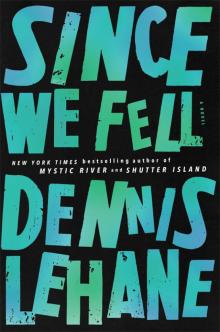 Since We Fell
Since We Fell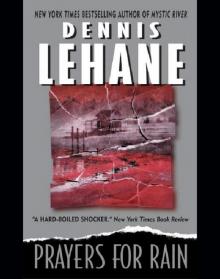 Prayers for Rain
Prayers for Rain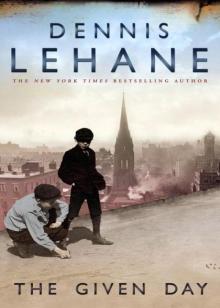 The Given Day
The Given Day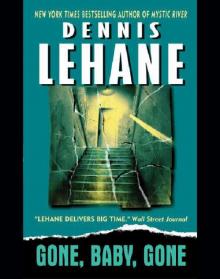 Gone, Baby, Gone
Gone, Baby, Gone Mystic River
Mystic River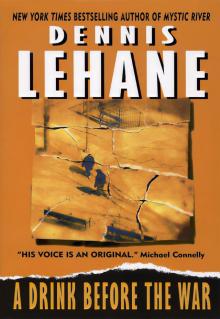 A Drink Before the War
A Drink Before the War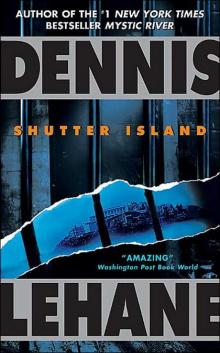 Shutter Island
Shutter Island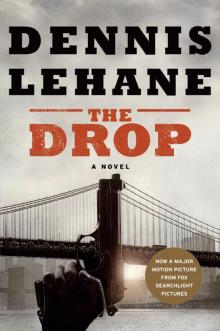 The Drop
The Drop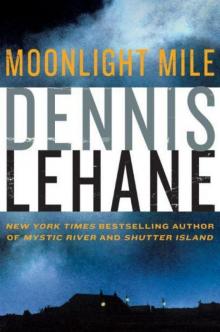 Moonlight Mile
Moonlight Mile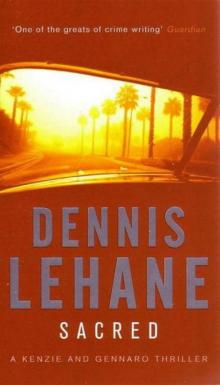 Sacred
Sacred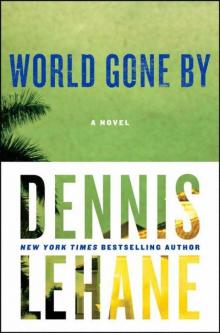 World Gone By
World Gone By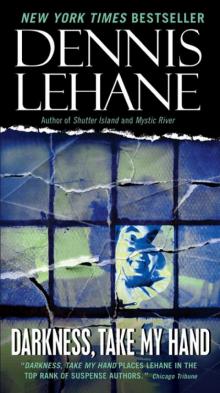 Darkness, Take My Hand
Darkness, Take My Hand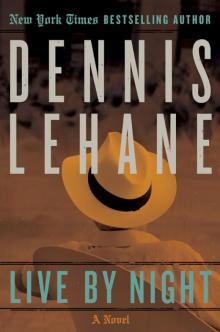 Live by Night
Live by Night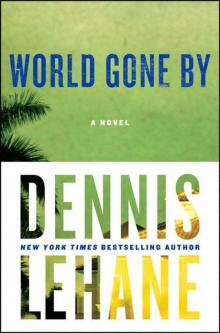 World Gone By: A Novel
World Gone By: A Novel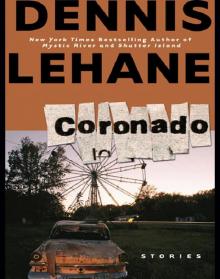 Coronado
Coronado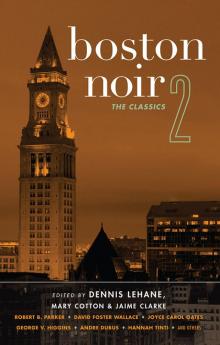 Boston Noir 2
Boston Noir 2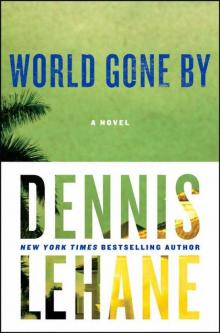 World Gone By: A Novel (Joe Coughlin Series)
World Gone By: A Novel (Joe Coughlin Series)